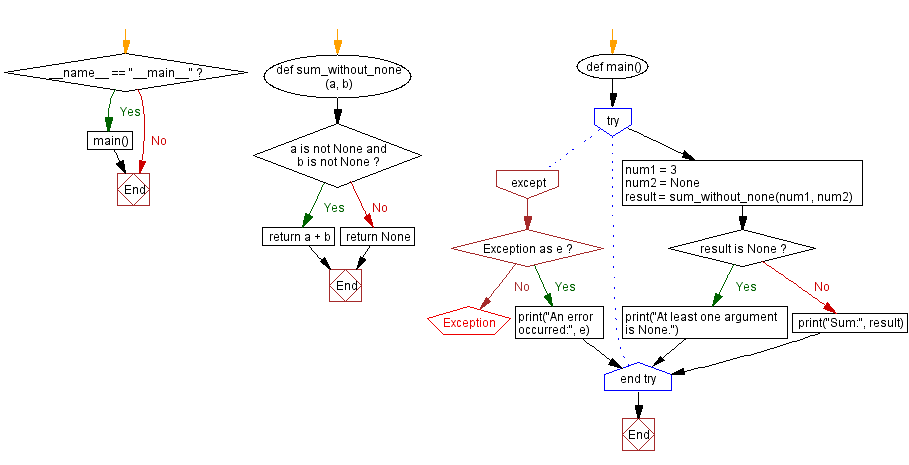Python Function: Sum with None check
8. Conditional Sum of Two Arguments
Write a Python function that takes two arguments and returns their sum if both aren't None, otherwise return None.
Sample Solution:
Code:
def sum_without_none(a, b):
if a is not None and b is not None:
return a + b
else:
return None
def main():
try:
num1 = 3
num2 = None
result = sum_without_none(num1, num2)
if result is None:
print("At least one argument is None.")
else:
print("Sum:", result)
except Exception as e:
print("An error occurred:", e)
if __name__ == "__main__":
main()
Output:
Sum: 10
At least one argument is None
In the exercise above, the "sum_without_none()" function checks if both arguments 'x' and 'y' are not 'None'. If they are not 'None', it returns their sum; otherwise, it returns None. The main function demonstrates the function's usage by providing two sample numbers. It prints the sum if both numbers are not 'None', or indicates that at least one argument is 'None'.
Flowchart:

For more Practice: Solve these Related Problems:
- Write a Python function that takes two arguments and returns their sum if neither is None; otherwise, returns None.
- Write a Python program to compute the sum of two inputs and return None if any input is missing, using a simple boolean check.
- Write a Python script that accepts two parameters, sums them if both are valid numbers, or returns None if one or both are None.
- Write a Python function to safely add two values, returning None when at least one argument is None, and test with various inputs.
Go to:
Previous: Count None values in list.
Next: Insert None between list elements
Python Code Editor :
What is the difficulty level of this exercise?
Test your Programming skills with w3resource's quiz.
